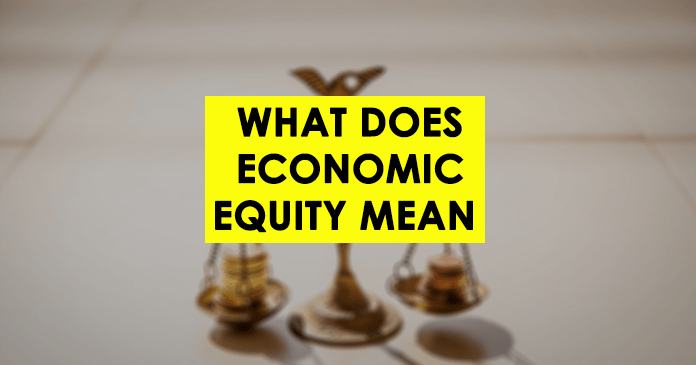What does economic equity mean? Let’s discuss it. Economic equity refers to the justice with which income is distributed within society.
In other words, economic equity relates to the concept or idea of justice, especially in relation to taxes and welfare economics. What do you consider to be the concept of economic equity? Leave your comment below.
Types of Equity
In economics, there are basically two types of equity.
- Vertical equity
- Horizontal equity
Economic Equity: Vertical Equity
Vertical equity is focused on the relative income and well-being of the entire population. It is concerned with how resources are allocated equally, and increased tax rates for high-income earners may be a result. As an example, a person who earns more, should pay more tax or redistribute his or her money as tax.
Furthermore, advanced or progressive taxation rules require to achieve this level of equality. Vertical equity is based on the idea that those who are able to pay more taxes should contribute more than those who are unable to do so.
Example of Vertical Equity
Look at the differences between a $50,000 per year taxpayer and a $10,000 per year taxpayer.
- If the tax rate is flat and proportionate at 10%, the higher income earner will pay $5000 in taxes for the tax year.
- The lower-income taxpayer will owe $1000 in taxes.
People with more resources or higher income levels will always pay more in taxes than low-income earners if the same rate applies across all income levels.
Economic Equity: Horizontal equity
Horizontal equity implies treating everyone in a similar position equally. Regardless of the tax structure in existence, horizontal equity should apply to all persons considered equal. Everyone is treated equally in this sort of economic environment.
Example of Horizontal Equity
If two taxpayers make $100,000, they should be taxed at the same rate under horizontal equity. Because they are both wealthy or belong to the same income class.
Equity vs Equality: What’s the Difference?
The fairness of income distribution across a society is referred to as economic equity.
Economic equality refers to that everyone earning the same amount of money, regardless of their abilities or contribution to the economy.
Why Equity is Important in Economics?
- Policies that promote equity can assist to lift people out of poverty both directly and indirectly. Fewer people slip into poverty when incomes are more fairly distributed.
- Because of its close relationship with fairness and social justice, several societies see equity and its moral implications as a worthy aim.
- Equity-promoting policies can improve social stability and reduce political conflict.
- The degree of production can be improved by promoting equity among workers or workplaces. They are also in a good situation to affect the welfare both socially and economically.
- Social security is provided through equity. Social protection should be provided to guarantee that no one falls below a certain level of well-being, where further unsatisfied wants would compound disadvantageous cycles.
Rate the article if you learned something new from it. ⭐⭐⭐⭐⭐


